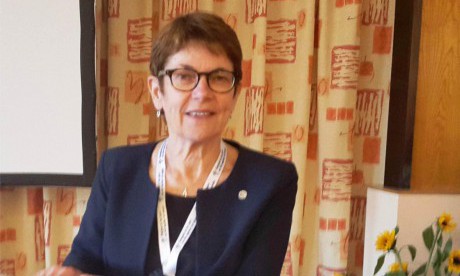British comedian, actor and writer Stephen Fry has a great intellect – no doubt.
His intelligence, wit and extraordinary life were clearly displayed during an interview broadcast recently on the ABC’s Compass program.
When asked what he would say to God if he happened to get to the pearly gates, Fry, a declared atheist, didn’t miss a beat.
“I’ll say, ‘Bone cancer in children? What’s that about? How dare you? How dare you create a world in which there is such misery that is not our fault’.”
He continued, “Why should I respect a capricious, mean-minded, stupid God who creates a world which is so full of injustice and pain?”
Like many others, Fry’s atheism and outrage is built on the edifice of theodicy – the problem of evil. How can an almighty and all-powerful God allow bad things to happen to good people?
The question is as old as humanity and any satisfactory answer, given the scale of evil and suffering in our world, proves to be implacably inadequate and elusive.
It doesn’t provide me with neat answers – far from it.
But a burgeoning interest in cosmology, the study of the origin and evolution of the universe, does give me a different ‘take’ on suffering and evil as well as new insights into the mystery of God and our place in the universe.
For some time now a fresh wave of scholars have been exploring the relationship between religion and science. Authors such as Thomas Berry, Brian Swimme, Elizabeth Johnson, Sally McFague, Judy Cannato, John F. Haught, Ilia Delio and Australia’s own Denis Edwards are plumbing the mystery of God with insights from the story of the universe.
I find their writing thrilling and evocative, mind-stretching and heart-warming.
These writers take seriously Thomas Aquinas’ 700-year-old warning that “If we get creation wrong we get God wrong”. Continue reading
- Good Samaritan Sister Patty Fawkner is an adult educator, writer and facilitator.
